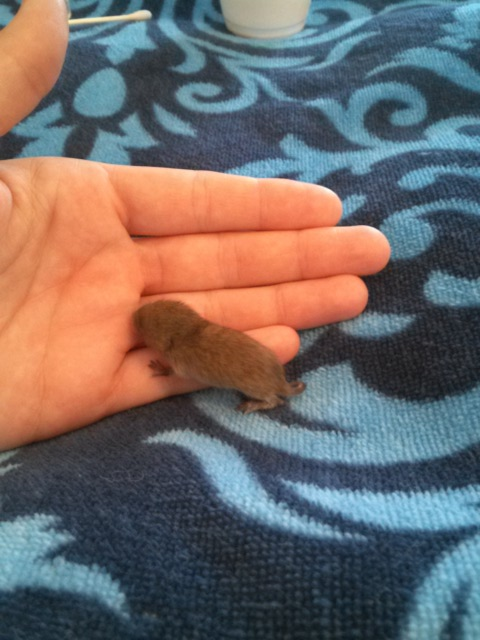QuestionHi,
I have a question regarding mice and diseases that they carry. I was wondering what types of mice are found in Tennessee and is it rare to get hantavirus or any other rodent related disease from my state? If not what kinds of diseases do they spread?
AnswerHi Keaton,
It looks like your state, like much of the U.S., is primarily populated by deer mice and house mice. The website for Tennessee's Watchable Wildlife (tnwatchablewildlife.org) also lists the golden mouse, woodland jumping mouse, and meadow jumping mouse as being present in Tennessee, though much less common.
Deer mice are the best-known carriers of hantavirus, but that does not mean that all deer mice have it, nor does it mean that they are the only species of rodent known to transmit the disease to humans. I do not know of any cases in which hantavirus was transmitted by a house mouse or pet mouse. Here is the CDC's webpage explaining how people contract HPS (hantavirus pulmonary syndrome): http://www.cdc.gov/hantavirus/hps/transmission.html This page also has a wealth of information on the disease, how to prevent it, symptoms, transmission, and more.
This is the most current occurrence map demonstrating which states have had reported cases of HPS: http://www.cdc.gov/hantavirus/surveillance/state-of-exposure.html On this map, no cases were reported in Tennessee. The CDC tracks all incidences closely, so this is where I would look for that information first and foremost.
As far as other diseases they might carry, mice are more likely to pass along parasites than diseases, and most likely to pass them to other rodents before you. Sick mice may bring with them such parasites as mites, lice, ringworm, and others. Most parasites that mice are subject to are species-specific, meaning they only affect other mice (with ringworm, a common fungus, being one exception - most mammals can get ringworm including humans through contact). Mice are not known carriers of rabies. Leptosporosis is a disease transmitted by infected animals through their urine (most species, including larger animals like pets and livestock). Salmonella is transmitted from infected animals to people through a fecal-oral route (their poop to your mouth, either through poor hand washing or contaminated food), and is again not limited to rodents. Really, other than these, I cannot find much in the way of things that mice could transmit to humans, and most of it can be easily controlled by keeping outdoor structures free of rodents and using good hand-washing techniques/habits. I would encourage you to search the CDC website for how common these things are, so you don't think mice are filthy! I could make bigger lists for most animals. :)
I hope I helped! Please let me know if you need information on anything else, and have a look at the CDC website, it is packed with great knowledge and statistics.
-Tam

 Pregnant Mouse
QuestionMouse
QUESTION: About 20 days ago I came
Pregnant Mouse
QuestionMouse
QUESTION: About 20 days ago I came
 Vibrating Mouse doesnt like being picked up by tail
Question
Pumpkin
Ive read a few of your posts, a
Vibrating Mouse doesnt like being picked up by tail
Question
Pumpkin
Ive read a few of your posts, a
 orphan mouse
Question
female mouse female mouse
Hello,
orphan mouse
Question
female mouse female mouse
Hello,
 Can you keep males together?
Question
adult female baby mouse
Hi, I ha
Can you keep males together?
Question
adult female baby mouse
Hi, I ha
 cat brought in injured wild mouse
Question
mouse
Hi,
My name is Alexandria and to
cat brought in injured wild mouse
Question
mouse
Hi,
My name is Alexandria and to